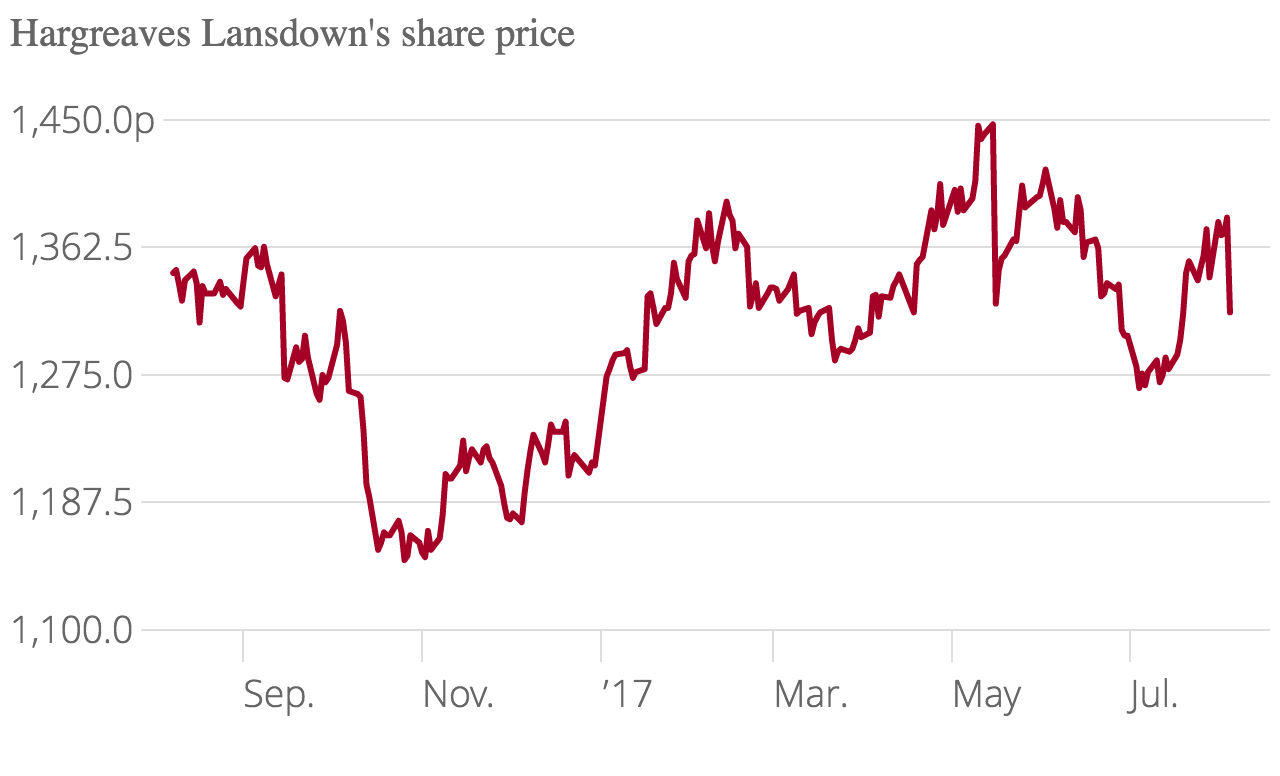Hargreaves Lansdown cuts dividend expectations as City regulator demands it ups its regulatory capital surplus

Investment services group Hargreaves Lansdown (HL) has dropped its special dividend, as City watchdog the Financial Conduct Authority (FCA) demands it raises its capital surplus.
The FCA reassessed HL's regulatory capital requirements "given the group's strong recent growth in scale and complexity". The investment group calculated that it now needs to retain an extra £50m.
If it paid a special dividend in 2017, its capital surplus during 2018 would be insufficient to meet its risk appetite levels.
However, HL has pre-released the key figures from its results which were due out on 15 August – perhaps in a bid to stay any drop in its share price, which was down 4.99 per cent at the time of writing.

Its assets under administration were up 28 per cent to £79.2bn, while net new business rose by 15 per cent to £6.6bn.
The group had 954,000 active clients, an increase of 118,000 in the year, and generated an increase in unaudited profit before tax of 21 per cent in the range of £265m to £266m.
Read more: Hargreaves Lansdown's share price falls, despite assets under management soaring to record levels as market share grows
Hargreaves Lansdown's dividend policy
HL has an ordinary progressive dividend policy. It intends to pay out around 65 per cent of its total net income in dividends across the market cycle, and return any excess cash to shareholders as a special dividend.
Last year, the group returned a special dividend of 9.9p on top of the 16.3p ordinary final dividend.
But for this year at least, HL shareholders will just have to stick with their 65 per cent ordinary dividend.
Read more: Standard Chartered share price flops as lack of dividend disappoints
What are capital requirements?
Regulatory capital is the amount of money which a bank or other financial institution, such as Hargreaves Lansdown, must hold to act as a buffer in times of crisis.
This is calculated as the amount of equity which an institution must hold as a percentage of its risk-weighted assets. So the more risky assets, the more capital must be held against them.
"The board believes it already had a robust balance sheet with sufficient capital to fund ongoing trading and future growth," said HL in a statement. "The action announced today maintains capital above our regulatory risk appetite levels, in line with our strategy of offering a safe and secure home for our clients' lifelong investments."
Read more: Aberdeen Asset Management told to boost its minimum capital requirements